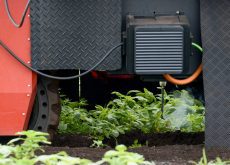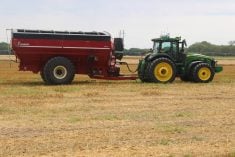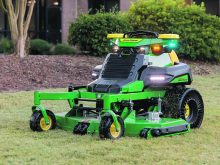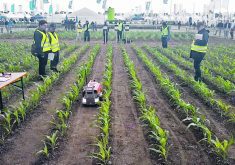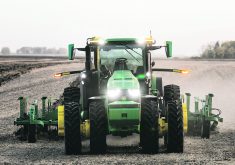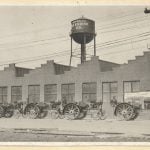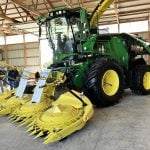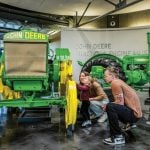Imagine a future where you’re driving in the country and instead of seeing a farmer operating a tractor or combine as has been the case for generations, you see an autonomous machine with no one at the controls.
How many years do you think it will take before this happens? And will it be a good or bad thing?
The Western Producer asked three people attending the recent Agri-Trade Equipment Expo in Red Deer for their opinion.
Riley Newsham, 25, who farms near Innisfail, Alta., said it would be ideal if full autonomy could arrive within five years because it would be extremely beneficial for his family’s operations.
“I’m of the belief the faster we can have it here, the better, simply for the case it’s hard to find people to run equipment… and I can manage a computer basically pretty easily.”
Ken Burton, 62, who farms near Irma, Alta., expected full autonomy will arrive within 10 years. However, he didn’t welcome it “because you can’t replace a human. A human can decipher things that a robot can’t.”
He emphasized he was sure that technologies such as precision agriculture and machine learning will have their time and place and that producers will need to be involved with them.
“I’m not disagreeing with that … but I don’t think you can eliminate the human part of it.”
There is a particular danger the family tradition aspects of farming could be lost in the drive to full autonomy and computerization of agriculture, “because what history are you going to have based on a robot?” said Burton.
“You’re not going to have the human side to it. I mean, that’s what creates the bond… generation after generation. It’s son watching dad, dad watched grandfather, it’s a generation thing. I don’t think we should take any of that out … that’s my personal opinion.”
Autonomous farm machinery “could happen very quickly,” said Dustin Verdonk, territory manager for northern Alberta for Chinook Equipment. “I don’t know if that’s a good thing — depending if that thing is in the field or it’s on the road, or if there’s nobody in it and it’s going across the road back and forth, probably not a good thing,” he said.
“But I mean ultimately, it’s going to be more efficient, yes, but I’m more concerned with what the guy who used to be sitting in that driver’s seat, what’s he going to be doing? But if he was able to utilize that time to do something a lot more productive, then yeah, of course it’s a good thing.”
As a fifth-generation farmer, Newsham expected attitudes about adopting autonomous agriculture will be divided along generational lines. He remembered how it was hard for some producers to switch to GPS technology when it first came out.
“I know for my dad and grandpa, my dad took it on — he learned, no problem, variable rate technology, all the basically switching from analog to the digital age of equipment. My grandpa wanted nothing to do with it… he had the human positioning system, not the global positioning system.”
Newsham expected in turn to potentially be more interested in autonomous agriculture than his dad, emphasizing there’s nothing wrong with that.
“I look forward to the future and using the technology for sure.”




